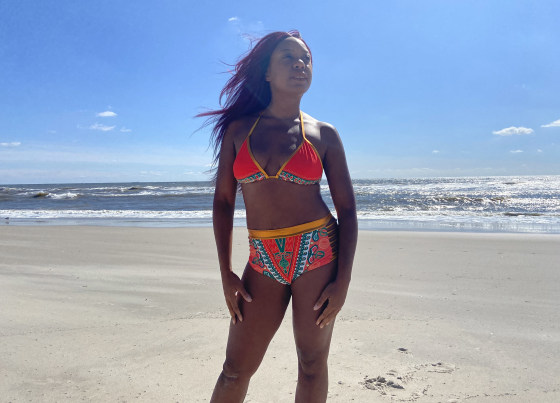As Lilith Costa reached her second trimester in what had been a long road to getting pregnant with her son, she recounts the shock upon learning that she tested positive for a gene mutation for hereditary breast cancer. In honor of Breast Cancer Awareness month, Lilith shares with Know Your Value her experience getting preventative surgery and why she considers her diagnosis a “beautiful defect.” Saybrook Productions chronicles her health journey in the documentary series, “Inheritance,” airing on PBS in October.
During my second trimester of pregnancy in 2015, while waddling around with a cone-shaped belly, I found out that I carry a hereditary cancer gene. Due to previously diagnosed autoimmune disorders, I knew my body didn’t handle pregnancy well. I was fortunate to already have a healthy daughter. But having endured a miscarriage and being told by doctors that my hormones were so unbalanced that I could no longer conceive made it seem like being pregnant again with my son was a miracle.
I had just gotten over months on bedrest when my gynecologist told me the results of a few tests I had done. The diagnosis made me feel like a mutant. I was among the one in 500 women living in America who carry a hereditary mutation that made my chance of getting breast cancer vastly greater than the average person.
Why did I seek out this information? Because of my family’s struggle with cancer. My father has prostate cancer, multiple women in my family were diagnosed with breast cancer in their 30s, including a great aunt who I never met because she died so young. Even my uncle had breast cancer.
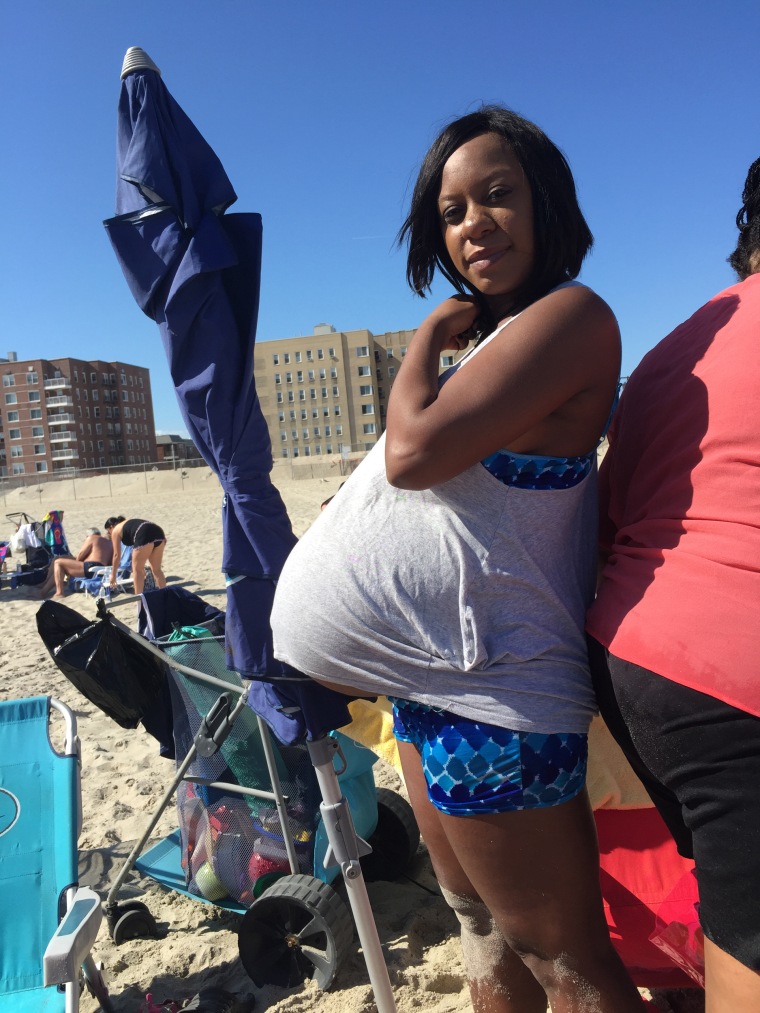
In hindsight, during pregnancy may not have been the best time to ask to be tested. My hormonal, overstressed brain processed the news as if I already had cancer – and that my family would have to go on without me. I started to feel a clock ticking, like my breasts had an unknown expiration date. To me, cancer is the ultimate villain: some people it randomly attacks, but for others like me, it silently stalks. I'm genetically targeted, and at the time I thought I was genetically screwed.
Telling my husband
When I first told my husband, Tom, about my diagnosis he responded with silence. The difficulties we faced getting pregnant and our struggle to stay pregnant without losing me or the baby had taken a toll on our relationship. Dealing with my risk of cancer was too much for him, especially while I was pregnant and had limited options. My husband and I fell in love when we were teenagers. Now in our 30s, our happily ever after shifted from day to day. The greatest threat to our relationship was the complications life threw at us and being complacent.
Telling the family
When I first told my family about my diagnosis my sister responded with unfiltered anger. She feared losing me. She feared what this positive result meant for our family, as though knowing invited cancer into our life. In my family, I was taught to pray on it. If it isn’t broke don’t fix it. The idea of undergoing surgery to remove healthy tissue was unheard of, just like the idea of taking a test to find out if you’re predisposed to cancer.
Making the decision
There wasn’t anything I could do while pregnant, and if I wanted to stay pregnant, I had to keep stress from my mind, so I suppressed my results for over a year. I focused on my family, pleased that our son made it into this world healthy, and then my ticking expiration date came into focus.
I found a lump under my arm, luckily it turned out to be an ingrown hair. But it sent me spiraling down a path of anxiety. Soon after, a woman in my neighborhood who was pregnant at the same time as me was diagnosed with breast cancer. Within six months she died, leaving her two young children and husband behind. She also had a hereditary cancer gene.
RELATED: 5 financial things every breast cancer patient needs to know — and probably doesn't
To preserve my future, I had to accept my diagnosis and confront my options: monitor or remove my breasts. Monitoring to me meant watching and waiting for cancer to attack, never being able to quiet the fear until it was too late.
Removing my breasts came with its own fear. How would my autoimmune issues respond to surgery? As a stay-at-home mom, who would care for my family? Would I find beauty in a reconstructed body? Would my husband? Could my relationship withstand another hurdle?
But what I feared most was the regret I’d have after being warned yet doing nothing. I made up my mind that no matter what, I would find beauty in my new figure.
I would accept my reflection because if I didn’t my husband would never get the chance to. I would no longer see my genetics as a curse, but as a warning that others in my family never had.
Getting the surgery
I had the first of several removal and reconstructive surgeries in early 2017. It included a double mastectomy, but also uterus and fallopian tube removal because the gene carries a higher risk of developing cancer in those areas as well.
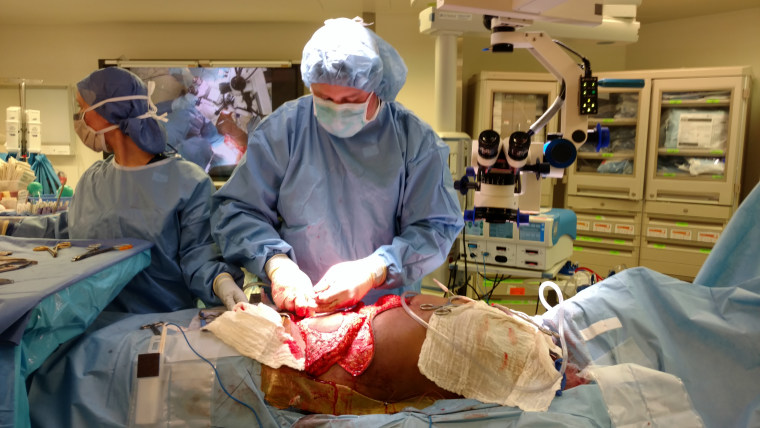
For the breast reconstruction, I chose a Deep Inferior Epigastric Artery Perforator (DIEP) Flap procedure that uses microsurgery to remove skin, blood vessels and tissue from my abdomen to rebuild my breasts. So, the extra baby weight that I once despised actually came in handy.
Knowing my threshold, I decided to keep my ovaries. Losing them would send me into menopause – an emotional and physical pressure I was not prepared to bear.
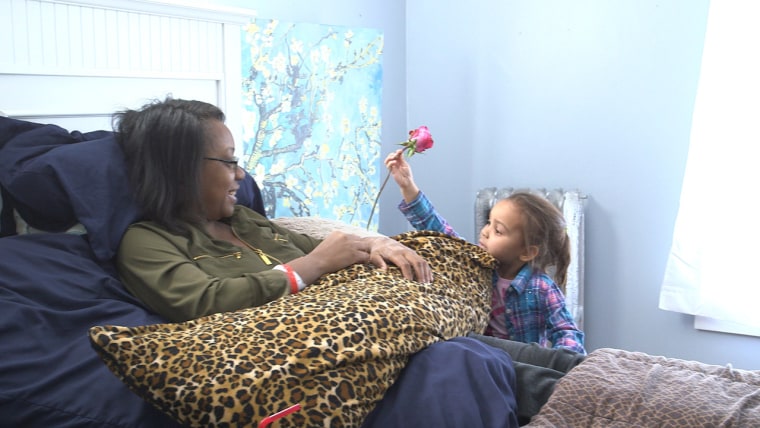
Recovery wasn’t easy with a 1- and 4-year-old. And after a 13-hour surgery, I found myself bedridden once again. For over a month all responsibilities, and care for me, fell on my husband.
There would be two more surgeries to follow: nipple reconstruction and liposuction. My prophylactic decision did put an additional strain on our marriage. But when that storm passed, we found a new appreciation, and renewed love for each other.
My sister – who was initially furious that I got tested – learned that a proactive choice could mean the difference between life and death. I helped her realize that knowing my risk didn’t invite cancer, it prepared me to make an informed decision. That led her to get tested.
A curse became a blessing
Being able to stay positive turned what I thought was a curse into a blessing. My beautiful defect helped me to find my voice, it gave me more confidence.
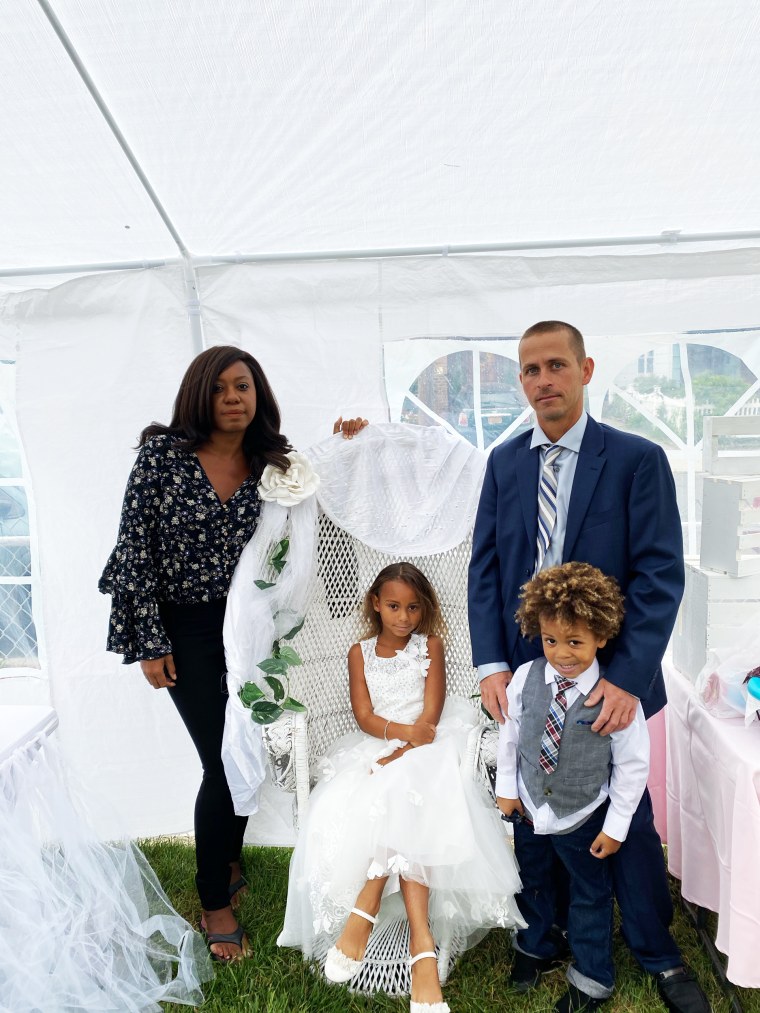
I realized that when we look at our burdens as punishment, we allow that hardship to weigh us down and hold us back.
If we only focus on our pain, we give pain the power to consume all the beauty in our life. But when we push through those dark moments, not allowing our problems to steal our joy, we gain resilience, strength and knowledge.
Our struggles become obstacles that challenge and propel us forward so that we can become a better version of who we were prior to that hardship. The diagnosis strengthened my relationship, not just with my husband and family, but with myself.
RELATED: How my breast cancer diagnosis taught me to advocate for myself — and others
You can see Lilith’s story and learn more about hereditary breast cancer in the PBS documentary series, “Inheritance,” re-airing on PBS in October.
Lilith Costa is a writer, women’s health advocate and mother of two, based in Rockaway Beach, NY. Lilith plans to release her debut book on her experience in 2021. Follow Lilith on Instagram @lilith_costa_.
